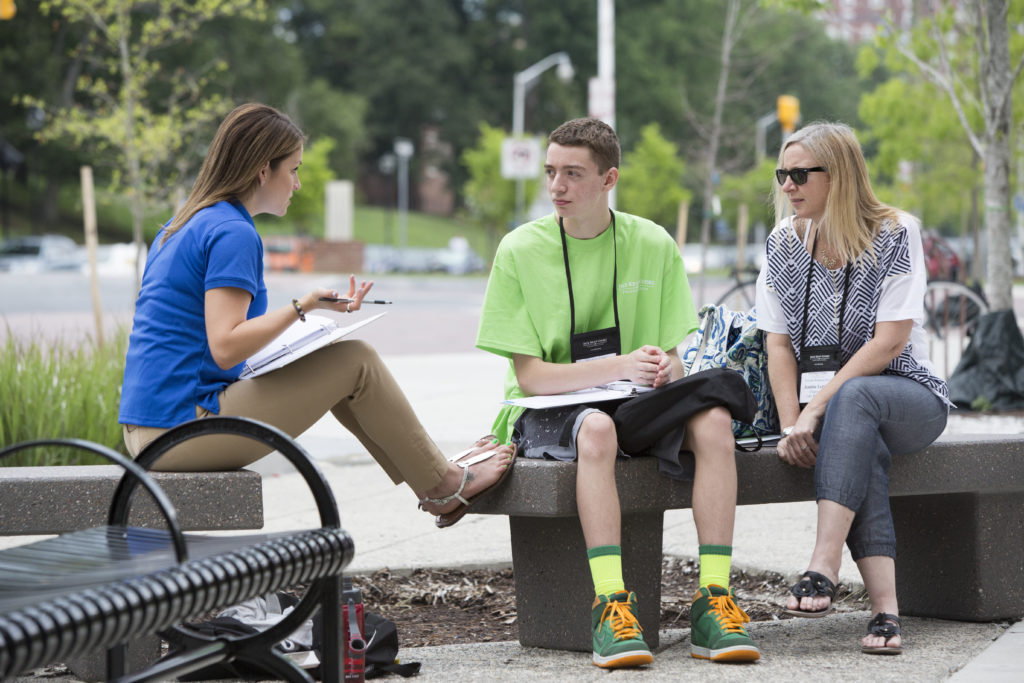4 Tips for Finding a Mentor and Making the Most of Your Time Together

1. Why should I have a mentor?
Behind every successful person is a mentor. Usually, it’s several mentors. Mentors provide both professional and personal advice; they are people who we can count on to celebrate our successes and help pick us up when we fall. Sometimes, mentors might feel like another parent or sibling looking out for our best interests. And good mentors will even allow us to make mistakes and then offer support and guidance as we learn from the consequences. Oftentimes, one mentor will lead a mentee to other mentors.
The question shouldn’t be ‘Why should I have a mentor?” but rather, “How can I find a good mentor?”
2. What should I look for in a mentor?
Looking for a mentor can be like looking for a good pair of shoes: it’s important to think about fit—someone with whom you will be comfortable over a long period of time. Moreover, no two people will look for the same things in a mentor. As you begin to think about an ‘ideal’ mentor, you should consider the following:
- What character and personality traits are most important to you? You want someone who you see as a role model, so s/he should have many of the traits you want to develop in yourself.
- What career aspirations or life experiences do you hope to have? While not always relevant for every mentor you have, you should at least find one mentor who is in the field of study that you are hoping to pursue, as this person will therefore be able to guide you toward your career goals. Even if you’re not quite sure what kind of career you want to have, you can find someone with life experiences that interest you.
- Who are the older people in your life who you already feel comfortable talking to? Chances are, you probably already have someone in your life who is a good mentor candidate, or who may already be mentoring you to some extent without you even realizing it. Think about your teachers, counselors, coaches, family friends, or older students; one of these people might be a great mentor and/or connect you to someone else they know who may be a better fit. Don’t be afraid to ask.
But if you’re looking for a new mentor, it can be tough to just find one out of the blue. In this case, you should ask your parents, teachers, and friends if they know someone who would be a good mentor for you. These are the people who know you the best, and they will likely have connections within your community.
If you do happen to ask someone to be your mentor, and they say that they don’t have enough time to help or that they don’t think that they’ll be a good fit for you, you should then ask that person if s/he has someone else in mind who might be available or a better fit. And if you still don’t have any luck finding a mentor this way, you can try contacting an organization like Big Brothers Big Sisters in your area.
4. I’ve found a mentor! …What should I do with him/her?
Most experienced mentors are usually good about asking you questions to find out how they can best serve you, but it doesn’t hurt to have a set of goals outlining what you hope to gain from a mentor relationship. Here are some tips about how to cultivate and maintain a strong relationship with your mentor:
- Call, email, or meet with your mentor regularly to discuss your personal and academic goals. Whether you plan a monthly visit or have weekly calls or bi-weekly email updates, it is important to maintain consistent communication so that you can learn about and from one another (yes, your mentor will learn from you, too).
- Be prepared for meetings or outings with your mentor. Bring a list of questions or notify your mentor ahead of time as to what you would like to discuss or work on together. For instance, you can ask a mentor to help you with college applications or to help you problem-solve a personal issue. If s/he can’t help you, a good mentor nevertheless be able to point you in the direction of someone who can.
- Plan activities that you and your mentor will enjoy. If you both like sports, go to a sporting event together. If it’s art, visit an art museum. Maybe share an article in between each time you meet that focuses on a topic of interest. The stronger the personal relationship with a mentor, the stronger the guidance s/he will be able to provide.
- Be honest with your mentor. Realize that this person wants to help you, and this means s/he wants to know the positive things that are happening in your life, as well as any challenges you might be experiencing.
Think about what you want for yourself now and in the future, and realize that there are already people out there who have determined how best to get there and what to avoid along the way. Mentors can help guide you to the smartest paths and which roads to avoid altogether. So find a mentor. Learn from and with this person. You will help yourself meet your own goals as you seek their experiences and expertise.